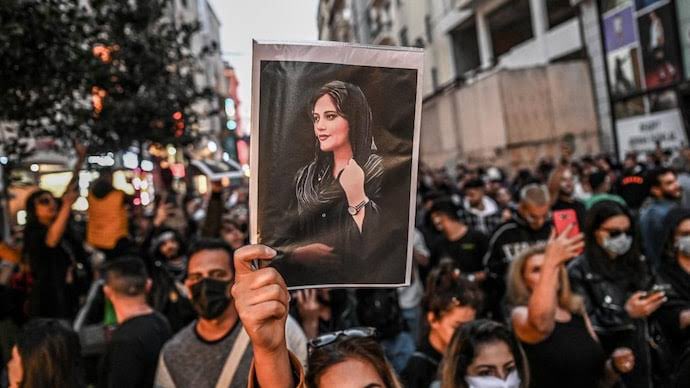
Iran hangs former defence ministry official over ‘British spy’ charge

Iran said on Saturday it has executed an Iranian-British national who once held a high-ranking position in the country’s defence ministry. The move came despite international warnings to halt the death sentence, further escalating Iran’s tensions with the West.
The hanging of Ali Reza Akbari, a close ally of top security official Ali Shamkhani, suggests an ongoing power struggle within Iran’s theocracy as it struggles to contain unending anti-government demonstrations over the September death of Mahsa Amini.
Akbari’s hanging drew anger in London, which, along with the US and others, has sanctioned Iran over the protests and supplying Russia with the bomb-carrying drones now targeting Ukraine.
British condemnation
The execution of Akbari “is a barbaric act that deserves condemnation in the strongest possible terms,” Foreign Secretary James Cleverly said in London. “This will not stand unchallenged.”
Iran’s Mizan news agency, associated with the country’s judiciary, announced Akbari’s hanging without saying when it happened. However, there were rumours he was executed days earlier.
Also read: Confusion over status of Iran’s morality police as women drop hijab
Iran has alleged, without providing evidence, that Akbari served as a source for Britain’s Secret Intelligence Service, known popularly as MI6.
A lengthy statement issued by Iran’s judiciary claimed Akbari received large sums of money, his British citizenship, and other help in London for providing information to the intelligence service.
Iran has long accused those who travel abroad or have Western ties of spying, often using them as bargaining chips in negotiations.
Who was Akbari?
Akbari, who ran a private think tank, is believed to have been arrested in 2019, but details of his case have only emerged in recent weeks.
Those accused of espionage and other crimes related to national security are usually tried behind closed doors, where rights groups say they do not choose their own lawyers and are not allowed to see evidence against them.
Also read: Iranian protests: A win for women, a bloody nose to colour revolution
Iranian state television aired a highly edited video of Akbari discussing the allegations, footage that resembled other claimed confessions that activists have described as coerced confessions.
Akbari’s version
The BBC Farsi-language service aired an audio message from Akbari on Wednesday in which he described being tortured.
“By using physiological and psychological methods, they broke my will, drove me to madness and forced me to do whatever they wanted,” Akbari said in the audio. “By the force of gun and death threats they made me confess to false and corrupt claims,” he added.
The United Nations human rights chief has warned Iran against the weaponisation of the death penalty as a means to put down the protests.
Also read: Iran lashes out at France over new Charlie Hebdo cartoons targeting Khamenei
On Friday, US State Department deputy spokesman Vedant Patel also criticized Akbari’s execution.
Iran is one of the world’s top executioners.
In 1984, Iran executed its navy chief, Adm. Baharam Afzali, along nine other military people, on the charge of spying for the Soviet Union.
Akbari tortured?
Akbari had previously led the implementation of a 1988 ceasefire between Iran and Iraq following their devastating eight-year war, working closely with UN observers.
He served as a deputy defence minister under Shamkhani during reformist President Mohammad Khatami’s administration, likely further making his credentials suspicious to hard-liners within Iran’s theocracy.
Now, Shamkhani is the secretary of the Supreme National Security Council of Iran, the country’s top security body.
Also read: Iran releases prominent actress who protested executions
Akbari’s audio message aired by BBC Persian included him saying he was accused of obtaining top-secret information from Shamkhani in exchange for a bottle of perfume and a shirt.
At least 520 protesters have been killed and 19,400 people have been arrested, according to Human Rights Activists in Iran, a group that has been monitoring the unrest.
(With inputs from agencies)


